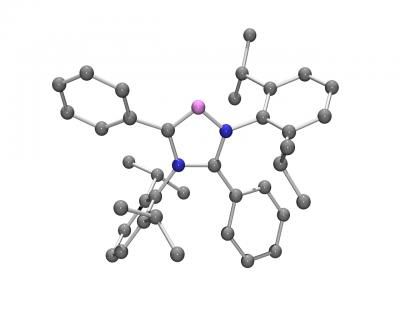Tecan introduces first fully automated BSE testing platform
Advertisement
Doubles output in lab testing for “mad cow” disease at agreed laboratories; reduces bottlenecks in European markets, where BSE testing of beef will be required before sale
Hombrechtikon (Zurich), Switzerland, 15 December 2000 – Tecan, a leading global provider of laboratory automation systems for the life sciences industry, today announced that it will expedite the launch of an automated system to test for bovine spongiform encephalopathy (BSE) in the European Union. The Tecan system doubles the speed of test kits for BSE that are now commercially available by reducing the amount of manual labor. Among the first affiliates to roll out the new automated platform will be Tecan Germany.
Meeting an urgent need throughout the European Union Growing alarm about the spread of BSE has prompted the European Union to release new guidelines regarding beef and beef products. These guidelines call for mandatory testing for cattle older than 30 months beginning in July of next year. National governments are already taking action. France will require similar testing beginning in January. On Dec. 6, the German Federal Health Minister ordered BSE tests to begin immediately at slaughterhouses for all cattle older than 30 months. Approximately 1.6 million tests will need to be performed every year in Germany alone.
The huge volume of testing required under the new guidelines has overwhelmed the capacity of small testing labs associated with slaughterhouses and meat packaging plants. Much of the current testing procedure is done by hand in small teams, creating backlogs that threaten to disrupt the whole distribution chain in Europe – resulting in a shortage of fresh beef for consumers.
“We are in the right place at the right time with our automated platform for testing BSE,” said Tecan’s CEO Emile Sutcliffe. “We recognized the potential bottleneck of testing with manual kits several months ago and moved our research and development into high gear to develop a solution. This demonstrates Tecan’s flexibility and rapidity in responding to evolving needs in life sciences. We are proud to be the first company to offer a solution for accelerating the detection of BSE, which is a serious concern for millions of Europeans.”
Tecan system performs 600 fully automated tests per day The basis of Tecan’s BSE platform is the Genesis pipetting system, which is equipped with a microplate washer, a microplate reader and three incubation stations (for 4°C, room temperature and 37°C). An integrated robotic arm transports the test microplate from one incubation-, washing- or reading-position to the next, resulting in a fully automated detection process. Only the sample preparation needs to be performed manually. The Tecan automated system can process about 600 BSE tests per day using commercially available test kits. Tecan will increase its activities to meet the expected demand, especially in the major markets of France, Germany and the United Kingdom.
About BSE BSE is a brain disease in cattle. It was first diagnosed in the UK in 1986. It reached epidemic proportions due to the inclusion in cattle feed of meat and bone meal produced from animal carcasses. To date, there have been over 180'000 cases in the UK and about 2’000 cases elsewhere in the European Union. While it is continuing to fall sharply in the UK, it is rising in a number of other Member States. However, it remains at low levels in these Member States relative to the UK figures.
Community measures to tackle BSE The European Commission has put in place a very comprehensive series of Community measures in relations to BSE which includes, as of January 1 2001, the introduction of targeted testing for BSE, with a focus on high risk animal categories. This measure will be reviewed and extended to all cattle aged over 30 months entering the food chain from 1 July 2001. Member states must ensure full implementation of all Community measure






























































